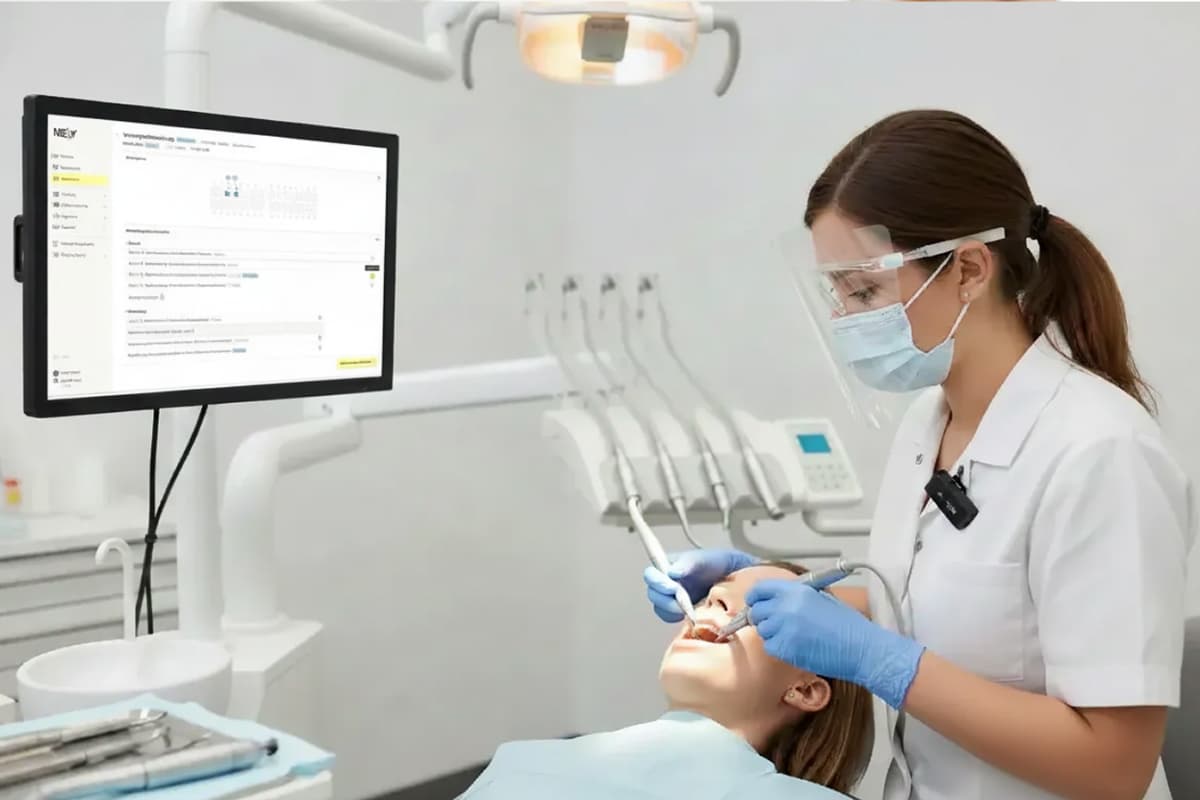Definition: What is digital health?
Digital health covers everything Applications of modern information and communication technologies (ICT) in healthcare together. In addition to caring for patients, this also includes preventing illnesses or daily fitness monitoring.
Typical areas of digital health and what lies behind them:
- Telehealth: The digital Doctor-patient communication or even remote treatment of patients via Video calls, chats, or email communications.
- Digital Health Applications (DiGA): Apps and software that are used to diagnose, treat, or prevent diseases
- Health tracking: personal health devices such as blood glucose meters, digital blood pressure monitors, and other wearable or home-use technologies that collect and transmit health data.
- Artificial intelligence and big data: Analyzing large amounts of health data to improve diagnoses and treatment plans and to better understand disease patterns.
- Health information systems: Systems for collecting, storing, managing and transmitting patient data and health-related information. Better networking of actors increases efficiency because, for example, different specialists have access to the same data basis.
Examples from everyday life
Digital health has long since arrived in our everyday lives. For example, the electronic health records a precise and complete health history of the patient across various healthcare facilities.
Wearables such as Fitness trackers, smartwatches, and heart rate monitors continuously record health data such as steps, heart rate, sleep quality, and even ECG data. They make a significant contribution to autonomous patient monitoring and disease prevention.
Mobile health applications for smartphones support health monitoring with functions such as medication reminders or wellness tips.
What is e-health?
E-health (electronic health) and digital health are usually used as synonyms. In fact, there are subtle differences in meaning. During E-health, particularly in connection with patients' health management is used, digital health also includes promoting the general well-being of people.
The term E-health is used, for example, by Federal Ministry of Health (BMG) used, measures such as the provision of the telematics infrastructure (TI), the electronic health card (eGK), the electronic health record (ePa) or the e-recipe summarize.

What is the legal situation in Germany?
In Germany, there are a number of laws that play a role in digital health. These include:
- Bureaucracy Relief Act: The BEG is intended to reduce bureaucracy and, in this context, also promotes the use of digital technologies. Amendment IV stated that, as a result of a corresponding change in the BGB The electronic form should become the official standard in legal transactions. The written form should only be considered as a substitute form.
- Digital Supply Act: The DVG forms the basis for the digitization of the healthcare system in Germany. The Act amends many existing laws and regulations, in particular regulations for statutory health insurance.
- Secure Digital Communications and Healthcare Applications Act: The so-called E-Health Act regulates the framework conditions for the introduction and use of digital technologies in healthcare.
- Patient Data Protection Act: The PDSG primarily regulates the protection of personal health data, in particular in connection with measures such as electronic health record (ePA) or the E-prescription.
What are the benefits and opportunities of digital health?
In addition to more efficient communication in healthcare, digital health offers almost endless possibilities for Improving healthcare both in Germany and globally. Some of the most important benefits at a glance:
- Improved access to healthcare: Digital technologies can expand access to healthcare services, particularly in remote or underserved areas. telemedicine makes it possible, for example, to consult specialists remotely.
- Better prevention and disease management: Wearables and mobile health apps can continuously monitor health data such as heart rate, sleep patterns, and activity levels. As a result, diseases can be prevented or the course of chronic diseases can be better managed.
- Increased patient involvement and autonomy: Digital tools enable patients to participate more actively in their own healthcare. Apps and online platforms offer easy ways to manage health information and make decisions about your own treatment.
- Data analysis and research: The collection and analysis of health data using digital tools provides valuable insights for medical research and the development of new treatment methods.
- Early detection of epidemics and disease outbreaks: Digital monitoring systems can help identify patterns and trends in diseases at an early stage and react accordingly quickly.
- More time for patients: By digitizing processes in medical practices, doctors are gaining more time for their patients. For example, doctors can with software such as Nelly Relieve their staff: With functions such as a digital anamnesis and automatic billing, medical practices save an average of 90 minutes of work per day.
Digital health in the near future
Technologies such as artificial intelligence (AI) and virtual reality (VR) offer exciting new opportunities. VR is suitable for treating phobias, for example, anxiety disorders, or PTSD by creating safe environments for exposure therapy.
Bill Gates, for example, believes that People in the poorest regions of the world get access to diagnostic medicine thanks to big data and AI could. The idea behind it: digital data analyses cost-effectively process large amounts of health information and automatically derive appropriate recommendations for action.

What are the challenges of digital healthcare?
Digital health poses challenges that both be of a technical as well as ethical, legal and social nature Can. Personal health information must at all times be stored and transmitted in accordance with data protection regulations. Data misuse must be ensured through security measures such as encryption technologies or secure server locations.
In addition, in the area of telemedicine or when retrieving electronic health records, for example, a high reliability of the digital infrastructure be given. Uniform technical standards are required and medical personnel need training to apply the new technologies without errors.
That is why it makes sense to modern software solutions from Germany to trust. Nelly complies with applicable guidelines and laws and also offers a user-friendly and intuitive interface.
Conclusion: Digital health is here and will be indispensable in the future
Digital health has established itself as an essential part of healthcare and will become more important in the future. It offers enormous opportunities for a improved medical care, more efficient processes and greater patient involvement. Despite the challenges in data protection, the opportunities for a progressive and patient-centered healthcare of the future.
How do I digitize my medical practice?
You want more time for your patients and less effort for documentation? Then digital health is just the right topic. Through government measures such as electronic health records and e-prescriptions, medical practices automatically benefit from the benefits of digital health. Anyone who needs help with digitization can even Loans or subsidies apply for.
With Nelly Take efficiency in your practice to the next level. Electronic patient admission, digital management of documents and automation of invoices — without any special hardware or app. Talk to our specialists.

The personal names used in this article always refer equally to all persons. Dual naming and alternate names are omitted in order to improve readability.












